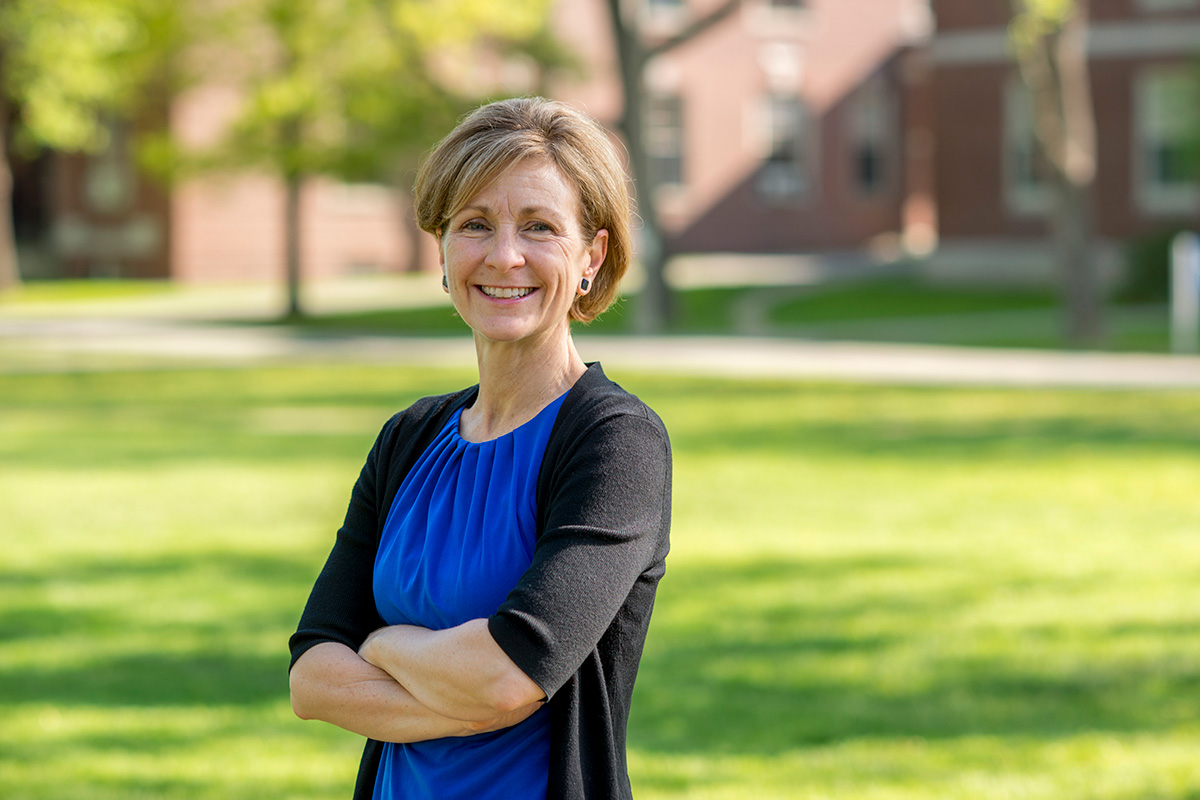
Allan partnering with PBS filmmaker on hazing prevention materials
Elizabeth Allan, professor of higher education at the University of Maine College of Education and Human Development, will partner with acclaimed PBS filmmaker Byron Hurt to develop a collection of hazing prevention resources to accompany Hurt’s 2022 documentary, “HAZING.”
The materials will include a viewing guide that will accompany the film and offer an overview of hazing as a form of interpersonal violence, as well as discussion questions and a series of short-form resources that focus on prevalent themes from the film, such as mental health, bystander intervention, leadership and power dynamics. Each resource will connect the film to hazing prevention and provide suggested activities to extend reflection and learning from the film’s content.
“HAZING” is a 90-minute first-person documentary in which Hurt weaves his story with those of a diverse mix of individuals whose lives have been impacted by hazing, including victims, their family members and perpetrators. Throughout the film, Hurt makes the case that hazing is a widespread, far-reaching and systemic problem, fueled by tradition, secrecy, groupthink, power and control, and the desire to belong. It also offers voices hopeful for and resistant to a hazing-free culture.
The film cites Allan’s research and features an interview with former UMaine faculty member Mary Madden, who collaborated with Allan on the landmark 2008 National Study of Student Hazing.
“‘HAZING’ is a powerful film that ignites reflection and dialogue that can help shift cultures,” says Allan, who will work with colleagues from StopHazing, an organization she founded to work on hazing prevention, as well as Hurt and the film’s producer Natalie Bullock Brown to develop the viewing guide and other resources. StopHazing’s operations manager Meredith Stewart will coordinate the project. Stewart earned her bachelor’s degree in secondary education in 2017 and her master’s degree in higher education in 2020 from the UMaine College of Education and Human Development.
“We appreciate Byron and Natalie’s thoughtful and courageous exploration of this complex topic and it is an honor to collaborate with them to help amplify the film’s use as an educational resource,” Allan says.
The viewing guide and other resources will be available in September on the StopHazing website. September is National Campus Safety Awareness Month and includes National Hazing Prevention Week.
“I’m very excited to work with Dr. Allan and the StopHazing team in an effort to advance discussion about how to prevent hazing,” says Hurt. “Our partnership creates an incredible opportunity for those who are truly committed to educating students to use the film as a media tool to spark dialogue hazing culture.”
“HAZING” debuted last year on the PBS series “Independent Lens.” It will be available to stream on other platforms, including Prime Video, Comcast and iTunes, starting September 12.
Contact: Casey Kelly, casey.kelly@maine.edu
